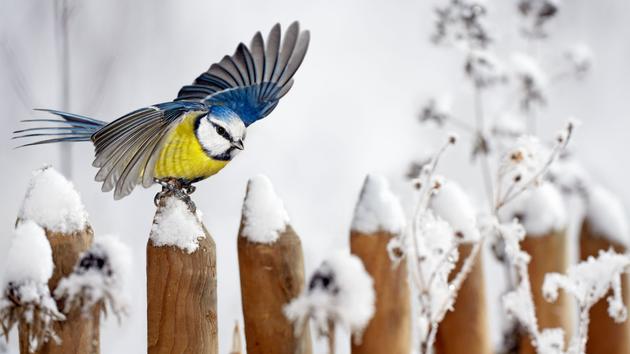They amuse as much as they confuse: "ramage, caracoule, pupule ..." If you listen carefully, you can recognize each animal by its cry.
Just as humans are distinguished by the sound of their voices, animals are distinguished by the sounds they emit.
"Cajole" (jay), "croule" (woodcock), "grisolle" (lark) ... The dictionary is teeming with these funny words.
Anthology.
The wood pigeon
The calls of birds are the tastiest.
Let us take the wood pigeon, this "large pigeon with a gray-blue head and back", indicates Le Larousse.
He does not coo but "caracoule".
The poet and writer Jean Richepin described this cry in
La Bombarde
as being "both hoarse and tender".
The stork
A jewel of the Alsatian region, it is not only the one that drops off infants in thatched cottages.
The stork is distinguished by its "crackle", this "repeated little noise that clicks", as the Encyclopædia Universalis defines it.
If the turtledove "coos" and the partridge "cacabe", the crane and the cicada crackle just as much.
The camel
Do you know that the "cockroach" camel?
This word comes from the Latin
blatero
, "to chatter, babble", specifies the Treasury of the French language.
We have by extension the verb “to blatter”, borrowed from the Latin
deblaterare
, which means “to say while chatting wrongly and through”.
The camel "cocks" by emitting this very particular sound which evokes ... vomiting.
The mouse
This noise, recognizable among all, can have harmful effects on our mind.
Do you hear that little rodent noise, that sort of squealing that terrifies the most reckless?
It is a mouse that "quibbles".
This word gave birth to the expression "chicoter", synonymous with "quibble" to say "to seek quarrel for trifles", explains the thesaurus.
When the owl "hoots", the owl "hisses".
As for the eagle, it "trumpets".
Do you know the difference between a hare and a rabbit?
If the ears of one are longer than those of the other, their cry is just as distinctive: the hare "wails" when the rabbit "yelped".
What about the peacock?
He "bawls", neither more nor less.
The woodcock “crumbles” and the titmouse “zinzinule”.
The verb "to zinzinulate" is also used to say "to sing, to twitter".
The duck "noses" when it is alone, and "nasal" when they are in a herd.

